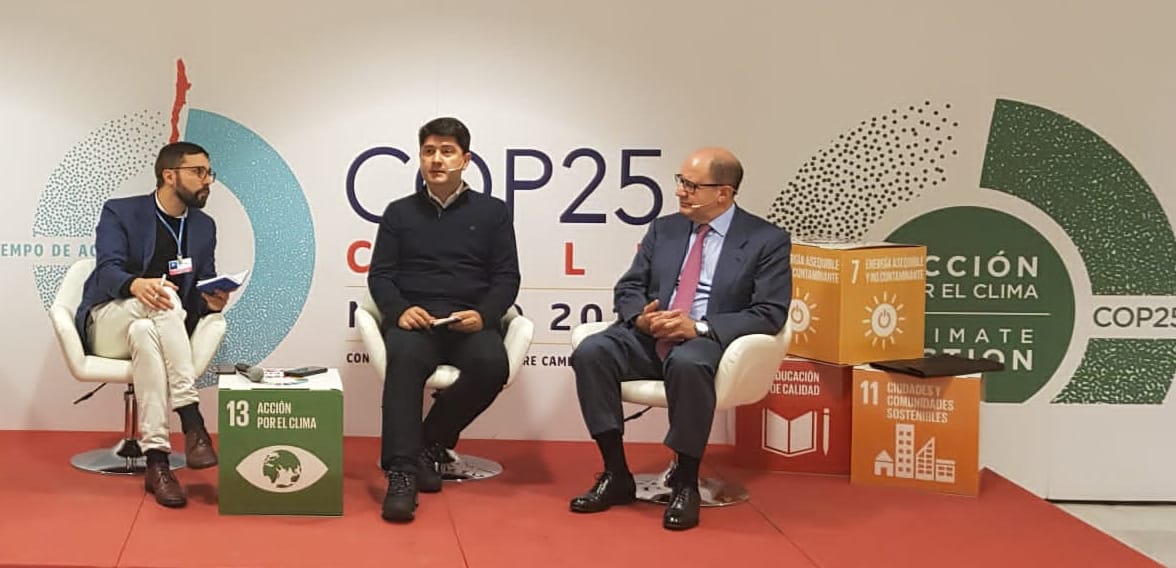In December 2019, GYA alumnus Javier García-Martinez (University of Alicante, Spain) in his role as the President of the Young Academy of Spain took part in the 25th Conference of the Parties to the United Nations Framework Convention on Climate Change (COP25), as part of the round table entitled “From the Academy to the Society. The Transfer of Knowledge key factor for sustainable development”, organized by the Spanish Ministry of Science, Innovation and Universities.
Specifically, he talked about the role of young academies in providing solutions and a network of active researchers to accelerate the achievement of the United Nations Sustainable Development Goals. As the founding president of the Young Academy of Spain, he highlighted the importance of giving visibility to young researchers and explaining how they are solving major problems while, in some case, taking those solutions from the lab to the market. He discussed the importance of science entrepreneurs in fighting climate change and their key role in providing the economic and social transformation that will allow the sustainable development of our society.
During the event, Javier – who is a professor of Inorganic Chemistry and currently the president-elect of the International Union of Pure and Applied Chemistry (IUPAC) – described some recent advances in chemistry and materials science related to the SGDs, and the research he is leading at the University of Alicante, Spain. More specifically, he mentioned some of his discoveries and the new catalysis he and his team have developed to fight climate change. Finally, he explained his work on the fabrication of more efficient and flexible solar cells to make solar energy an increasingly attractive alternative; and the development of new systems for the removal of pollutants from of air and water.
“Young scientists from all disciplines are key players in the achievement of the Sustainable Development Goals, and Young Academies are great platforms to coordinate, empower and enable their efforts so they can effectively contribute to solving our most pressing challenges,” Javier said during the round table discussions.
A summary of his arguments can be found in Javier’s article in El Pais on “Science against climate change” (in Spanish).
